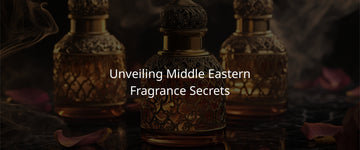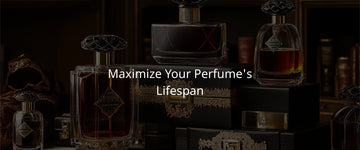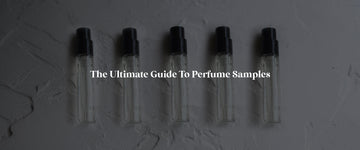In the world of perfumery, a fragrance is more than just a scent. It's a personal statement, a sensory experience, a cherished memory.
But have you ever wondered, "Does perfume expire?"
The answer is yes. Like all things beautiful, perfumes too have a lifespan.
Understanding perfume expiration is crucial for both enthusiasts and professionals. It helps maintain the integrity of your scent collection and ensures your fragrances always smell their best.
In this guide, we delve into the intricacies of perfume expiration. We'll explore how to identify an expired perfume, the factors affecting its longevity, and expert advice on keeping your fragrances fresh.
Whether you're a perfume enthusiast seeking to deepen your knowledge or a professional in search of unique, long-lasting scents, this guide is for you. Let's embark on this fragrant journey together.
Understanding Perfume Expiration
Perfume expiration is a concept that many overlook. Yet, it's an essential aspect of maintaining a fragrance collection.
Perfumes, like food or medicine, do expire. They have a shelf life beyond which their scent changes, and they may no longer be safe or pleasant to use.
The typical lifespan of a fragrance is between 3 to 5 years. However, this can vary based on several factors.
- The quality of ingredients
- The concentration of essential oils
- The presence of preservatives
- The storage conditions
Understanding these factors can help you prolong the life of your perfumes and enjoy them at their best.
The Lifespan of a Fragrance
The lifespan of a fragrance is not set in stone. It can range from a few months to several years.
Perfumes with higher concentrations of essential oils tend to last longer. These include eau de parfum and parfum concentrations.
On the other hand, lighter fragrances like eau de toilette or eau de cologne may have a shorter lifespan due to their lower oil concentration.
Factors That Affect Perfume Longevity
Several factors can affect the longevity of your perfume. One of the most significant is exposure to light, heat, and air.
These elements can break down the perfume's ingredients, altering its scent and reducing its lifespan.
Another factor is the type of scent. Citrus-based scents tend to expire faster than woody or oriental ones due to the volatility of their top notes.
The presence of preservatives can also affect a perfume's longevity. Synthetic preservatives may extend a perfume's life, while natural perfumes without these additives may have a shorter lifespan.
Lastly, the way you store your perfume plays a crucial role in its longevity. Proper storage can significantly extend a perfume's life.
Identifying Expired Perfume
Knowing when a perfume has expired is crucial. It's not just about the scent but also the integrity of the ingredients.
An expired perfume may not smell as it should. The top notes may have faded, or the overall scent may have changed.
In some cases, expired perfumes may develop a vinegar-like smell. This is a clear sign that the perfume has turned and should no longer be used.
The color of the perfume can also change when it expires. It may become darker or cloudy, indicating that the ingredients have started to break down.
Lastly, the consistency of the perfume can change. If it becomes thicker or has particles floating in it, it's likely expired.
Visual and Olfactory Signs of Expiration
Visual and olfactory signs are the most reliable ways to identify an expired perfume.
If the perfume has changed color, especially if it has turned darker, it's a sign of expiration (unlike vanilla based fragrances where they change colour as a sign of oil maceration and oxidisation). Similarly, if the perfume has become cloudy or has particles floating in it, it's likely expired.
On the olfactory side, if the scent has changed significantly or if it has developed a vinegar-like smell, it's a clear sign that the perfume has expired.
The Role of Packaging and Storage in Preservation
Proper packaging and storage play a crucial role in preserving your perfume.
The original packaging of a perfume often offers additional protection against light, heat, and air. Keeping your perfume in its original box can help extend its life.
Similarly, storing your perfume in a cool, dark place can significantly prolong its lifespan. Avoid places with fluctuating temperatures, like the bathroom, as this can accelerate the expiration process.
Preserving Your Perfume Collection
Preserving your perfume collection is an art. It requires knowledge, care, and a bit of diligence.
Understanding the factors that affect perfume longevity is the first step. Exposure to light, heat, and air can accelerate perfume expiration.
Similarly, the quality of ingredients and the presence of preservatives can affect a perfume's lifespan. Natural perfumes without synthetic preservatives may have a shorter lifespan.
Here are some tips to help preserve your perfume collection:
- Store your perfumes in a cool, dark place.
- Keep them in their original packaging for added protection.
- Regularly assess your collection for freshness.
Best Practices for Fragrance Storage
Proper storage can significantly extend the life of your fragrances.
Firstly, keep your perfumes away from direct sunlight and heat. These can cause the ingredients to break down faster.
Secondly, avoid storing your perfumes in places with fluctuating temperatures, like the bathroom. Consistent, cool temperatures are best for preserving your fragrances.
Tips for Extending the Life of Your Fragrances
There are several ways to extend the life of your fragrances.
Firstly, regular use can help prevent a perfume from expiring prematurely. The more often you use a perfume, the less likely it is to expire.
Secondly, consider the packaging material. Glass bottles are better than plastic ones, as they offer better protection against light and heat.
Lastly, avoid refilling bottles. This can introduce contaminants that accelerate expiration.
Special Considerations for Middle Eastern Fragrances
Middle Eastern fragrances are renowned for their rich, long-lasting scents. They often feature ingredients like oud, known for its longevity.
However, these fragrances also require special care. Understanding their unique composition can aid in proper storage and preservation.
Moreover, cultural practices in perfume application can influence how quickly a scent expires.
The Impact of Ingredients and Composition
The ingredients and composition of a fragrance play a crucial role in its longevity.
Middle Eastern fragrances often feature rich, long-lasting ingredients like oud and amber. These ingredients are known for their longevity and can extend the life of a fragrance.
However, these fragrances can also be more susceptible to changes in temperature and humidity.
Cultural Practices and Scent Longevity
Cultural practices can also influence the longevity of a fragrance.
In the Middle East, it's common to layer scents. This practice can affect the overall longevity of a fragrance.
Moreover, the frequent application of perfume can help prevent it from expiring prematurely.
Conclusion: Embracing the Lifecycle of Your Fragrance
Understanding perfume expiration is not just about maintaining the scent. It's about preserving the integrity of the ingredients and the craftsmanship behind the fragrance.
Embracing the lifecycle of a fragrance can enhance your appreciation for it. Even as a scent evolves over time, it can still hold its charm.
In the end, the emotional connection to a fragrance may influence your desire to preserve it. With proper care and understanding, you can extend the life of your favorite scents and continue to enjoy them for years to come.





